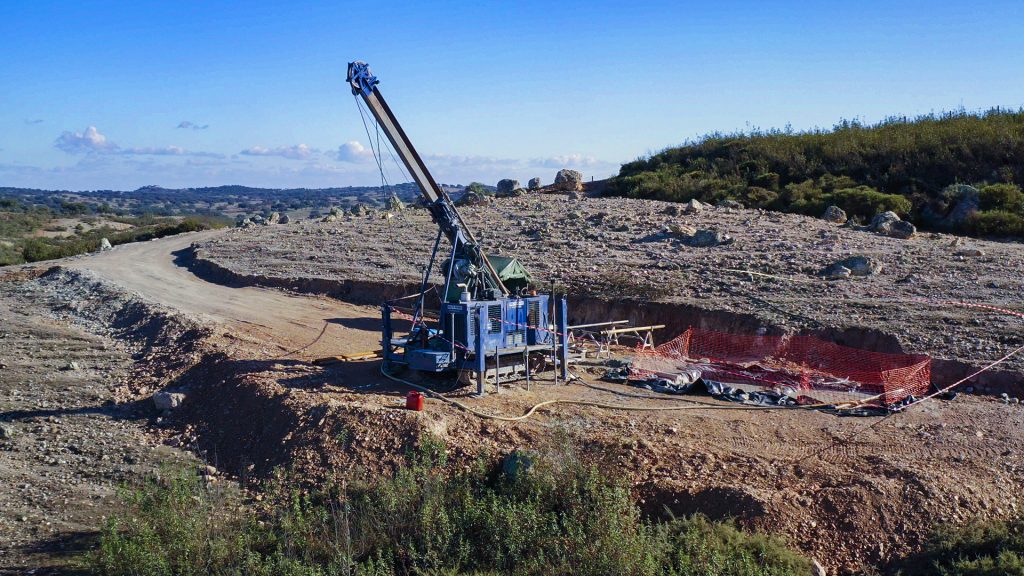Emerita Resources expanding Iberian Belt West mineralization, Spain

Emerita Resources Corp. [EMO-TSXV; EMOTF-OTC] reported additional assay results from the 2022 delineation drilling at La Romanera deposit at its wholly owned Iberian Belt West project (IBW), located 144 km west of Seville, Spain. The company has 13 drilling rigs on site on a 24-hour rotation.
Assay results have been received from four drill holes, LR028, LR024, LR020 and LR018. All intercepted significant mineralization except LR018, which intercepted primarily massive pyrite.
Holes LR028, LR024 and LR020 are aligned along a similar elevation of approximately 225 metres vertically below surface and extend across a horizontal distance of approximately 450 metres. Massive sulphide mineralization occurs in both the Upper and Lower lenses in holes LR024 and LR028. Hole LR024 occurs within the zone explored by previous companies in the 1970s and 1980s, and drillholes LR028 and LR020 are equidistant to the west and east from LR024 and occur outside the historic drilled zone. This demonstrates massive sulphide mineralization extends along strike for at least 450 metres at this elevation.
From east to west, the order of the drill holes presented is: Drill hole LR020 intercepted massive sulphide mineralization only in the Lower Lens. The Lower Lens was intercepted from 281.7 metres and encountered 16.6 metres grading 0.3% copper; 0.5% lead; 0.9% zinc; 1.2 g/t gold and 58.6 g/t silver, including 2.1 metres grading 0.1% copper; 0.6% lead; 2.5% zinc; 2.4 g/t gold and 105.6 g/t silver. This drill hole represents a step-out of 50 metres east of LR007.
Drillhole LR024 intercepted both the Lower and Upper massive sulfide lenses. The Upper Lens occurs from 285.2 metres and intercepted 10.7 metres grading 0.9% copper; 3.8% lead; 6.6% zinc; 1.2 g/t gold and 129.7 g/t silver. The interval between the two lenses is 22.4 metres and is characterized by disseminated sulfide mineralization. The Lower Lens consists of 30.0 metres grading 0.5% copper; 0.6% lead; 0.5% zinc; 3.0 g/t gold and 67.6 g/t silver, including 7.5 metres grading 0.3% copper; 0.9% lead; 0.1% zinc; 7.2 g/t gold and 41.6 g/t silver.
Drill hole LR028 intercepted two lenses of massive sulphides. The Upper Lens occurs from 299.3 metres with 4.4 metres grading 0.3% copper; 2.0% lead; 7.3% zinc; 1.1 g/t gold and 94.9 g/t silver. The Lower Lens occurs 12.1 metres below the Upper Lens and intercepted lower grade massive sulfides consisting of 2.8 metres grading 0.5% copper; 0.1% lead; 0.1% zinc; 0.3 g/t gold and 6.9 g/t silver.
According to Joaquin Merino, P.Geo., President of Emerita, “Drilling to date carried out by the company shows the existence of two semi-parallel massive sulphide lenses, which appear to merge to the west, and importantly appear to continue at depth below the present drilling. The strike extent also remains to be fully tested. At depth below approximately 500 metres below surface both lenses remain open for further expansion potential with additional drilling.”
